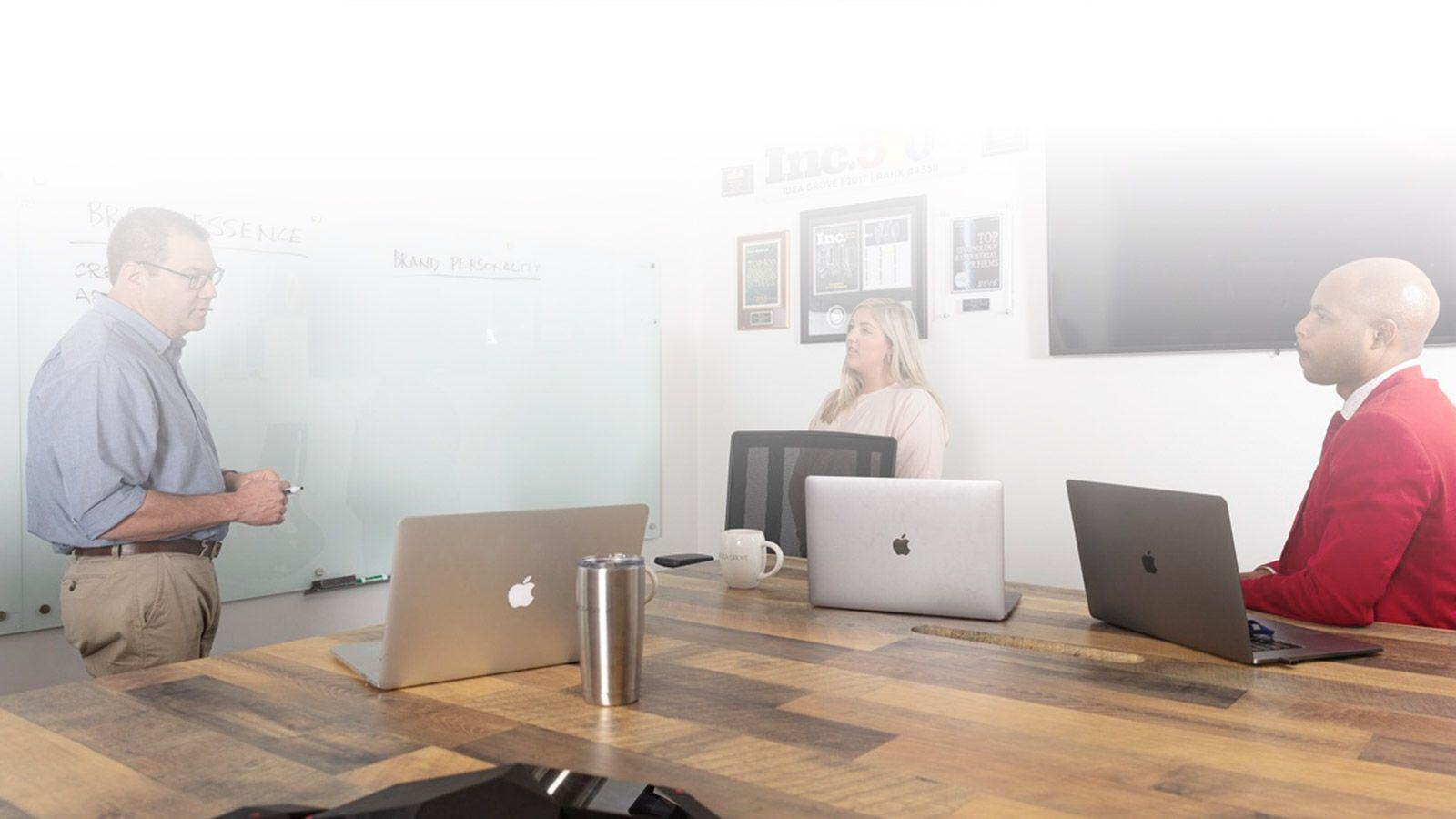It’s no secret that B2B PR agency life is fast-paced. We manage multiple deadlines, orchestrate complex marketing campaigns and constantly jump from one highly technical industry to the next—all without breaking a sweat (most of the time). One of the most valuable skills I’ve developed during my time at Idea Grove is time management.
Some people are more wired for this world than others, but time management is certainly a skill that can be learned and improved upon. The best PR agencies have a mastery not only of the practice of PR but of the practice of time management—providing the tools and processes that keep everyone moving in the same direction at a consistent pace.
Understanding how you—and Your Team—works best

There is no one-size-fits-all method to time management because everyone works differently. And since you know yourself best, you’re ultimately responsible for achieving a healthy work-life balance through the effective management of your tasks.
I’ve heard quite a few people mention that they do their best writing in the morning. So much so that I had come to accept this as a rule that could be applied across the board. But as we've discussed time management as a team and shared tips and tricks for working efficiently, several people offered alternatives to my theory that writing was a task best suited for the start of your day.
After quite a bit of internal research and discussion, our agency found an ingenious way to make it easier for our team members to focus on their tasks and manage their time based on their roles. Specifically, we divided our company’s workdays into Manager Hours and Maker Hours. The "makers" are those who require focused time to write, design and create, while the "managers" are those who manage our projects and client relationships.
To empower our makers to get into the zone and stay there, we officially split the day into two parts: mornings would be Maker Hours and afternoons would be Manager Hours. This meant that managers were to only schedule Zoom meetings with makers after lunch.
After a few months, we listened to feedback from our team and decided to shorten the morning maker time block slightly and to add a second, shorter block in the late afternoon. Makers currently have a 150-minute uninterrupted time block in the morning and a 90-minute one in the afternoon.
Getting Communications and Files organized

If you aren’t careful, your inbox can drive the tasks you focus on daily. To avoid this, I find it helpful to spend 10 or 15 minutes each morning reviewing my work across all clients and determining which activities are the most important. During this time, I create a to-do list with items ranked by priority, keeping in mind that what’s urgent isn’t always what’s important.
While to some people, 15 minutes might seem like too much time to be spent planning how to conquer the day, I always gain this time back in the efficiency that is created by staying organized. In addition to keeping my to-do list in order, I’m a stickler for file management and a tidy inbox. If every time someone asks me for a document, I have to spend several minutes searching my computer or rummaging through email, that time can add up quickly.
In the same way that time management is not one-size-fits-all, neither is file management. Find a system that works with you and stick with it. Do the same for your inbox and consider taking advantage of the rules feature to automatically sort lower priority messages to specific folders. It may take a while to set up, but you’ll thank yourself one day when you can find any file at the drop of hat.
As an agency, we continue to communicate with one another to see what works best for time management and file management. We've set up consistent processes that help us better manage our days. And last year, we set some important new "rules of engagement" for internal communications that have worked well for us.
Specifically, we defined a clear role for each of our communication tools. Slack and email, as well as our project management tool, Teamwork, are used exclusively for asynchronous communication. A same-day or next-morning response is always deemed sufficient for these channels, and no one expects a response sooner than that. If a manager needs a response within an hour or two, they are to send a text. If they need an immediate response, they are expected to pick up the phone and call. No exceptions.
We also set clear rules for file management, such as when to use Google Docs vs Egnyte, and where documents of all kinds should be found. It's saved us an enormous amount of time and frustration—and made our work for clients infinitely more efficient.
Conducting efficient meetings

Another thing that can chip away at our time is a calendar full of meetings. While face-to-face communication is important, avoid getting trigger-happy when it comes to scheduling meetings.
Meetings are necessary for collaboration, but they need to run efficiently. There are a few ways to keep the calendar in check:
- Plan shorter meetings: Outlook defaults to 30-minute meetings, but try scheduling 15-minute meetings to accomplish the same tasks more quickly.
- Have standing meetings to keep everyone focused: People are less likely to get off-topic if they’re on their feet.
- Create an agenda and stick with that agenda: Know the specific action items that need to come out of the meeting in order to keep it on task
One surprising thing we've found over the past couple of years, with the dramatic increase in Zoom meetings, is that remote work has led to more meetings, not fewer. The ease of use of Zoom has made the scheduling of meetings a snap—but also less disciplined.
It can be much easier to add half a dozen team members to a Zoom invite to discuss a client issue than to think through what each individual actually needs to know or contribute and whether they need to be there at all. Each new meeting means less focused work time—and more "attention residue" for makers.
While you're typing up a quick meeting agenda, if you realize a meeting may not be needed, don’t be afraid to cover the topics in an email or Slack.
Despite our best efforts, sometimes the to-do list, inbox and crowded calendar get the best of us, and that’s okay. Another important skill is to know when to ask for help, and at Idea Grove we’re all about collaboration.
Our collaboration doesn’t just benefit us as an agency, it benefits everyone we do business with because it ensures we spend most of our time on what’s important: getting results for our clients.

 6 min read
6 min read





 4 min read
4 min read

